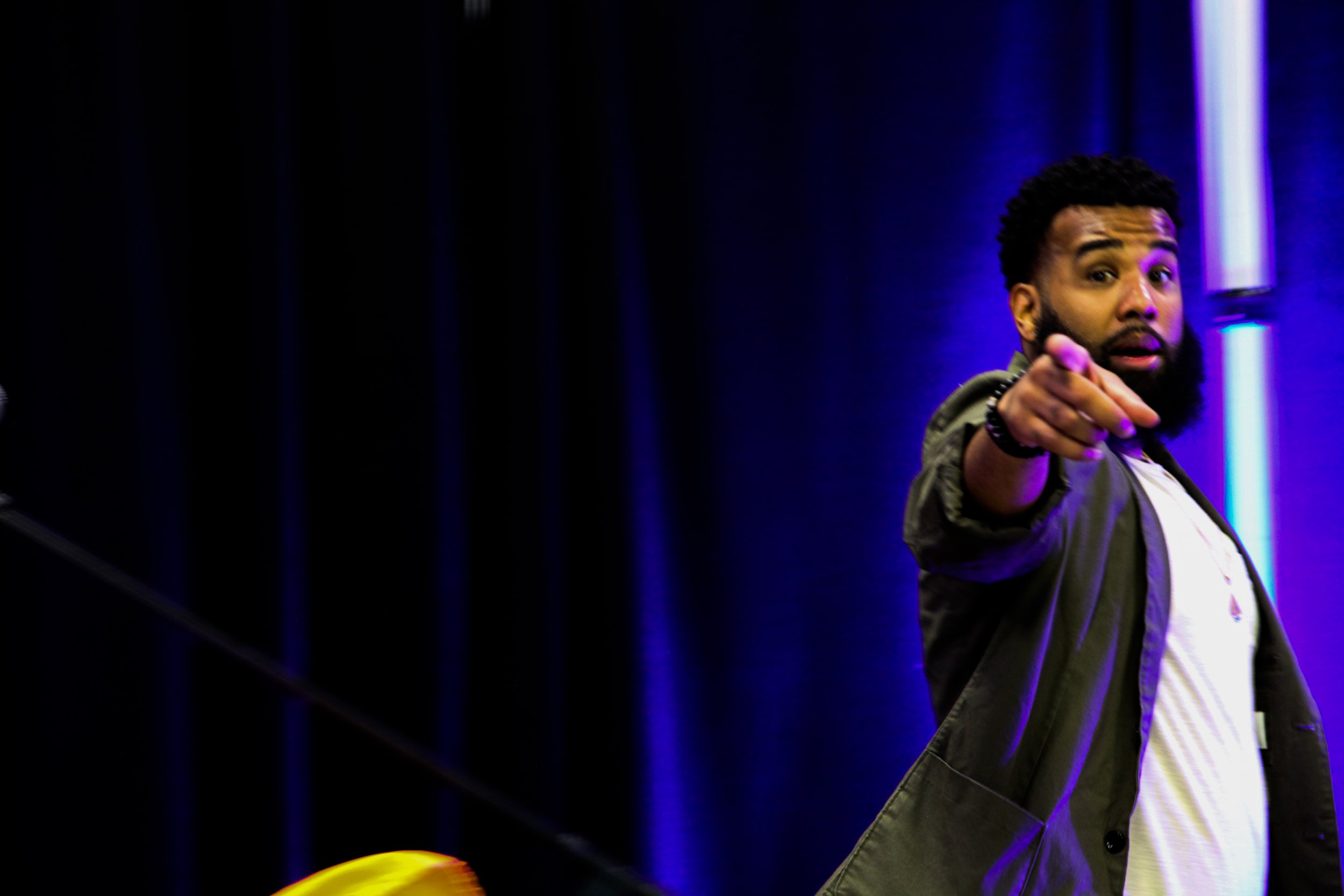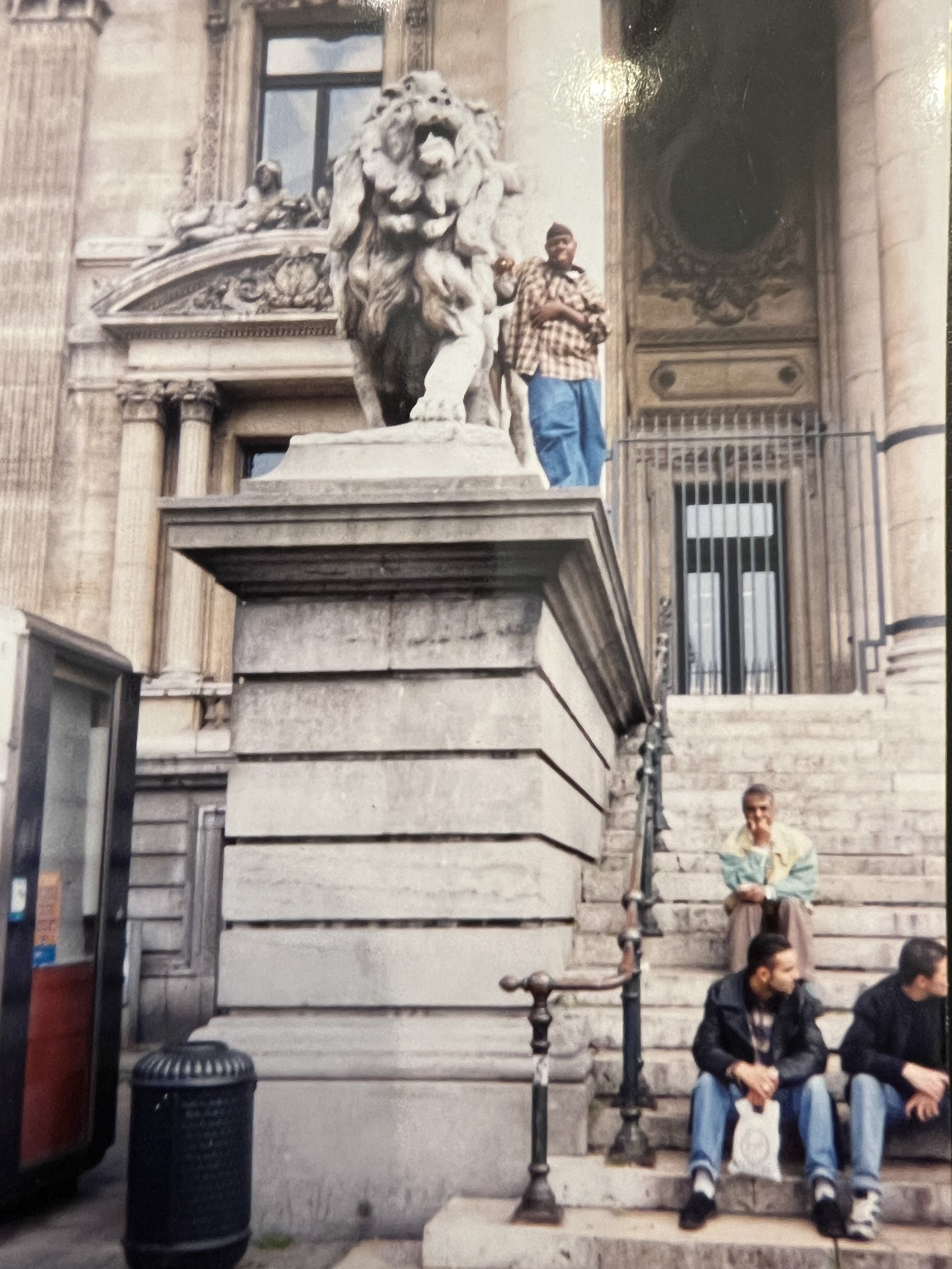Are You a Preacher Or Missionary?
Pastor Trevor Chin
Childhood Heroes and Aspirations
Growing up, my Sundays were a transformative experience.
I sat in awe as Elder Paul at Jerusalem COGIC, and Reverend Brown at Mt. Pleasant MB Church took to the pulpit. The atmosphere they could conjure was electric—captivating sermons, the congregation swaying in unison, a collective feeling of spiritual uplift. They were more than pastors. They were demigods in the community.
It never dawned on me that preaching would be a central part of my vocation—being that powerful preacher who could move mountains with their words.
I never expected that I would have that same kind of impact on others.
The Shift: A Missions Trip That Changed Everything
But then, something pivotal happened in my life: my first mission trip.
Charlie Mitchell circa 1998 (Brussels, Belgium)
I remember going out daily on new adventures in various parts of Brussels and across Belgium.
This wasn’t just camp or church life as usual. This was something different. It was as if a veil was lifted. Suddenly, I realized that my calling was not behind a pulpit but out there, amidst real struggles and genuine human experiences.
I didn't just want to speak to a congregation. I wanted to serve a community.
The Fatal Flaw in Urban Church Planting
Urban church planters often mistake preaching for mission work.
Many church planters, perhaps enchanted by the charm and grace of preachers like Jakes, G.E. Patterson, Mason, and Loritts, aim to replicate that kind of public speaking prowess.
However, the folks in urban settings, particularly in black and brown communities, aren’t necessarily seeking a master orator. They’re seeking relief, guidance, and a sense of community. They want someone who can understand their struggles and offer them hope. They want someone who can help them find their place in the world. They need someone who can make them feel like they are not alone.
Preachers who can offer these things will be more successful in urban settings than those who focus on their public speaking skills. They will be able to build strong relationships with their congregations and make a real difference in people's lives.
A Lesson from Hip-Hop Culture
Consider this analogy from hip-hop culture.
Some purists appreciate intricate lyrics and complex beats—they love the art form for its technical brilliance. However, the artists who often resonate the most—Lil Baby, Durk, Kodak Black—are not necessarily the most lyrically intricate. Why?
They're deeply embedded in their communities, reflecting their people's struggles, hopes, and dreams.
The Missionary Approach
And that's what being a missionary in your setting is all about.
It's about understanding the pulse of your community. It's about meeting people where they are, not where you want them to be. It's about leadership through influence, not authority. It’s about building a community, not a platform.
What Sets Them Apart?
In urban church planting, preachers often wait for the community to come to them. They lead from a stage and seek to build a platform. Missionaries, on the other hand, step into the community. They lead through direct involvement and influence. Their platform is the genuine relationships they build.
Preachers often focus on preaching and teaching, while missionaries focus on building relationships and serving the community. Preachers may have a larger platform, but missionaries have a deeper impact. Preachers may reach more people, but missionaries reach people more deeply.
Preachers and missionaries both have important roles to play in urban church planting. Preachers can provide spiritual leadership and teaching, while missionaries can provide practical help and build relationships. When preachers and missionaries work together, they can reach the lost and build strong churches in urban areas.
Here are some examples of how missionaries step into the community:
They make disciples while making dinner.
They make disciples while coaching football.
They start a small business.
They offer after-school programs.
They teach at a local school.
They offer English classes for immigrants.
They provide counseling and support groups.
Missionaries build genuine relationships with people in the community by being present, listening, and caring. They build trust and respect, and they show the love of Christ.
Final Thoughts
If you're considering becoming an urban church planter, ask yourself this critical question: Are you a preacher or a missionary?
Your choice will inevitably define your reach and impact. There's a place for preaching, especially in conveying the core tenets of faith, but don’t forget that the heart of effective church planting—particularly in urban, black, and brown communities—is to be deeply, authentically in love with the people you're called to serve.
Your decision between being a preacher or a missionary doesn't just affect you; it shapes the community you aim to build.
Choose wisely.
Yo! Are you subscribed to The Urban Church Planter Newsletter powered by Maroon House?


